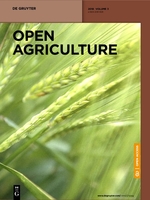While micronutrient malnutrition has become a major public health problem in developing countries, consumption of biofortified foods such as orange fleshed sweet potato has proved to be cost effective means of addressing vitamin A deficiency. This paper describes consumer preferences and willingness to pay for Orange fleshed Sweet potato (OFSP) juice based on a structured survey and taste tests administered to 946 participants (384 female and 562 male) chosen at random in Rwanda. Four juices types were tested: two popular brands of 100% pineapple juice, one 100%-OFSP juice, and one 80% OFSP- 20% pineapple juice blend. Consumers ranked different attributes of each juice such as aroma, taste, color, “right” amount of sugar, and aftertaste using a Likert scale (1 to 5). Heckman two-stage probit model was used to analyze willingness to pay and a multinomial logit model was used to analyze the determinants of juice choice. Gender of the consumer, juice buying frequency, aroma, the taste of the juice, and vitamin A knowledge were positively associated with willingness to pay and juice choice. Without nutritional information on OFSP juice, the willingness to pay for the standard juices were statistically higher; but with nutritional information, the willingness to pay and choice of OFSP juice was significantly improved. It is concluded that nutrition information is an important factor influencing the acceptance and willingness to pay for OFSP juice.
Investigating consumer preferences and willingness to pay for Orange-fleshed Sweet potato (OFSP) juice in Rwanda.
Citation: Bocher, T.; Sindi, K.; Muzhingi, T.; Nshimiyimana, J.C.; Nzamwita, M.; Low, J. 2019. Investigating consumer preferences and willingness to pay for Orange-fleshed Sweet potato (OFSP) juice in Rwanda. Open Agriculture. ISSN: 2391-9531. 4(1). pp. 227-236.
2019-11-27
BIOFORTIFICATION, IMPACT ASSESSMENT, INCLUSIVE GROWTH, SWEETPOTATO AGRI-FOOD SYSTEMS, SWEETPOTATOES
Africa
Rwanda
journal_article

